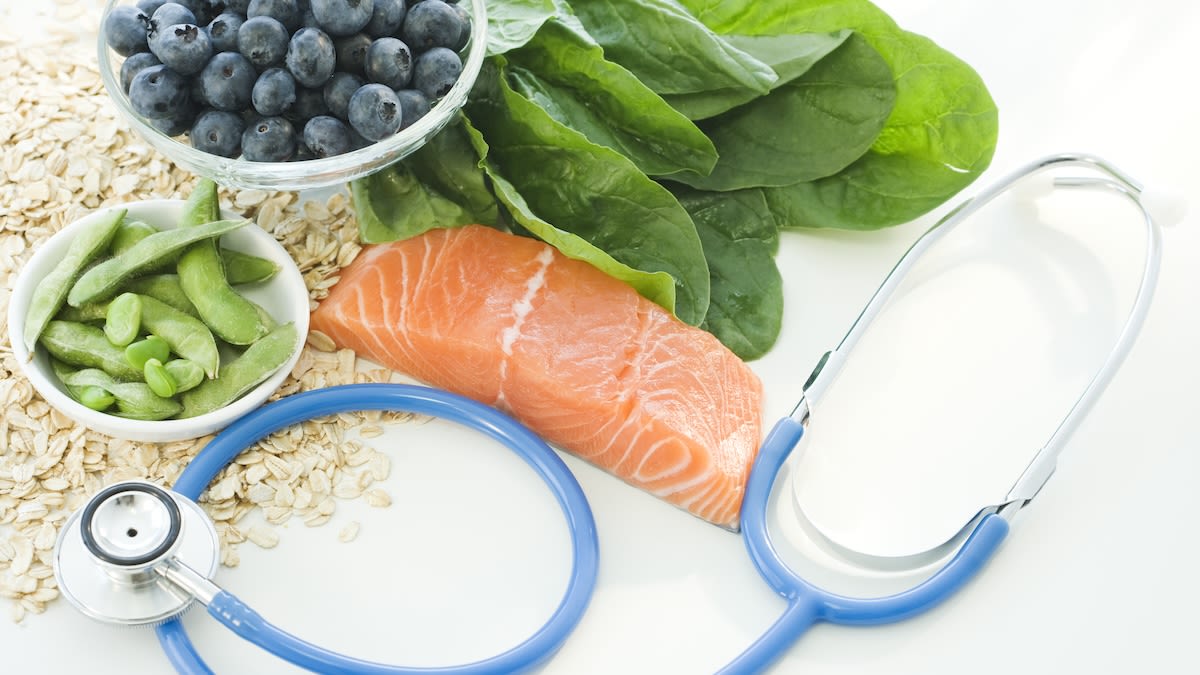Search results
Aug 20, 2023 · Research shows that losing a small percentage of your weight (5% to 10%) can improve blood pressure, cholesterol and blood sugar levels, per the Centers for Disease Control and Prevention. The improved blood markers can help to decrease your risk of or better manage chronic and metabolic diseases, such as cardiovascular disease and diabetes.
Step One: Journey Book. Drawing from biblical truth, the insights of science and medicine and his personal experience of transformation, Dr. Joseph L. Williams uncovers myths of health and wellness and exposes the connections between spiritual and physical wholeness. More than just a book on weight loss, The Journey is a spiritual process that ...
People also ask
How can a healthy lifestyle help you lose weight?
Are You attempting to lose weight?
How do I start a weight loss journey?
- Embrace The Long Game
- Rely on A Professional to Help
- Adopt The 80/20 Philosophy
- Understand Set Point Theory
- Track Your Food
- Rethink The Scale
- Track Other Metrics
- Get Moving
- Focus on Fiber
- Eat Protein at Every Meal
Changing habits requires repeating the new behaviors over the long term, according to 2021 research in Psychology & Health. This includes setting realistic expectations. A safe, sustainable amount of weight to lose is about 1/2 pound to 2 pounds per week. In reality, however, that might look more like 2 to 3 pounds per week in the beginning, then p...
This is not the time to try another detox or strict meal plan that an Instagram influencer is promoting. Those are diets in disguise—they work for the short term but not for the long term. Long-term weight loss is about small habit changes you can keep up with over time. Those who are successful at losing weight usually work with professionals, typ...
So what is the 20% that Sarah mentioned? Think of it as all of the foods you restrict when you're dieting but eventually end up bingeing on. Sustainable weight loss is about ditching the all-or-nothing mentality, letting go of the idea that one meal can make or break your efforts and embracing balance. Aim to follow the MyPlateguidelines about 80% ...
The body likes balance. Body temperature stays within a narrow range of 98.6°F. The pH of blood is around 7.4. Your body has a weight range it likes to stay within too: It's called your set point. Unfortunately, it's easier for this range to move up than it is to move down. This is for various reasons scientists are still trying to figure out. For ...
Research, like the 2019 study in the journal Obesity, suggests that those who track their food are most successful with losing weight and keeping it off. While tracking isn't meant to be done forever, it can be a helpful tool until new habits stick. A habit is an automated behavior. The more habits you create, the fewer decisions you have to make a...
A 2021 study in Translational Behavioral Medicinesuggests that those who self-monitored their weight lost more of it. Here's the caveat: Weight should not be the onlymetric you track. And you need to understand what the scale measures. The scale does not measure fat—and you do not lose or gain fat overnight. The scale is a measurement of everything...
Several of my clients might not see the scale move in months, but they lose inches and feel amazing. In addition to weekly weigh-ins, consider taking waist circumference measurements and progress photos once a month. Five pounds of fat and five pounds of muscle weigh the same, but muscle takes up less space (and adding more means you're getting str...
Diet matters more than exercise for weight loss, but exercise is crucial for keeping off the weight. Plus, exercise has plenty of other benefits. If you are sedentary and then start moving, you will start burning calories, which will create a calorie deficit. "Finding exercise you love helps to maintain the weight loss," reports Sarah. Don't know w...
A calorie deficit is needed for weight loss, but instead of focusing on what to restrict, focus on what to add. The body breaks down protein, carbohydrates and fat from food and absorbs the nutrients. If you're eating more calories than your body needs, the extra will be stored as fat. However, the body doesn't absorb or store fiber. Fiber passes t...
Along with fiber, eat protein at every meal, especially breakfast. A 2021 review in Nutrientssuggests that when people eat a high-protein breakfast, they have fewer cravings and eat less later in the day. Protein suppressesthe hunger hormone, ghrelin, and is digested slowly, keeping you full longer. When protein is eaten with carbohydrates, it slow...
- Brianna Elliott, RD
- Exercise Often. Regular exercise plays an important role in weight maintenance. It may help you burn off some extra calories and increase your metabolism, which are two factors needed to achieve energy balance (3, 4).
- Try Eating Breakfast Every Day. Eating breakfast may assist you with your weight maintenance goals. Breakfast eaters tend to have healthier habits overall, such as exercising more and consuming more fiber and micronutrients (9, 10, 11).
- Eat Lots of Protein. Eating a lot of protein may help you maintain your weight, since protein can help reduce appetite and promote fullness (16, 17, 18).
- Weigh Yourself Regularly. Monitoring your weight by stepping on the scale on a regular basis may be a helpful tool for weight maintenance. This is because it can make you aware of your progress and encourage weight control behaviors (25).
News about weight loss, Mounjaro, fiber
News about Kelly Hyland, breast cancer, treatment plan
Also in the news
Oct 18, 2019 · Eat more often. Generally, you should be feeding your body every 3 to 4 hours (except when you're sleeping, of course), notes Greebel, cautioning that "more often doesn't mean continuously." It means eating breakfast, possibly a snack before lunch, lunch, possibly another snack, then dinner. It goes back to metabolism and keeping your body fed.
- Determine Why You Want to Lose Weight. Clearly define all the reasons you want to lose weight and write them down. This will help you stay committed and motivated to reach your weight loss goals.
- Have Realistic Expectations. Many diets and diet products claim quick and easy weight loss. However, most practitioners recommend only losing 1–2 pounds (0.5–1 kg) per week (2).
- Focus on Process Goals. Many people trying to lose weight only set outcome goals, or goals they want to accomplish at the end. Typically, an outcome goal will be your final target weight.
- Pick a Plan That Fits Your Lifestyle. Find a weight loss plan that you can stick to, and avoid plans that would be nearly impossible to follow in the long term.
Jan 1, 2016 · Wins all around. 3. Guzzle water 24/7. Even though your body is generally a pretty brilliant machine, it can be prone to slip-ups. "Sometimes what you think is a hunger pang is caused by thirst ...





